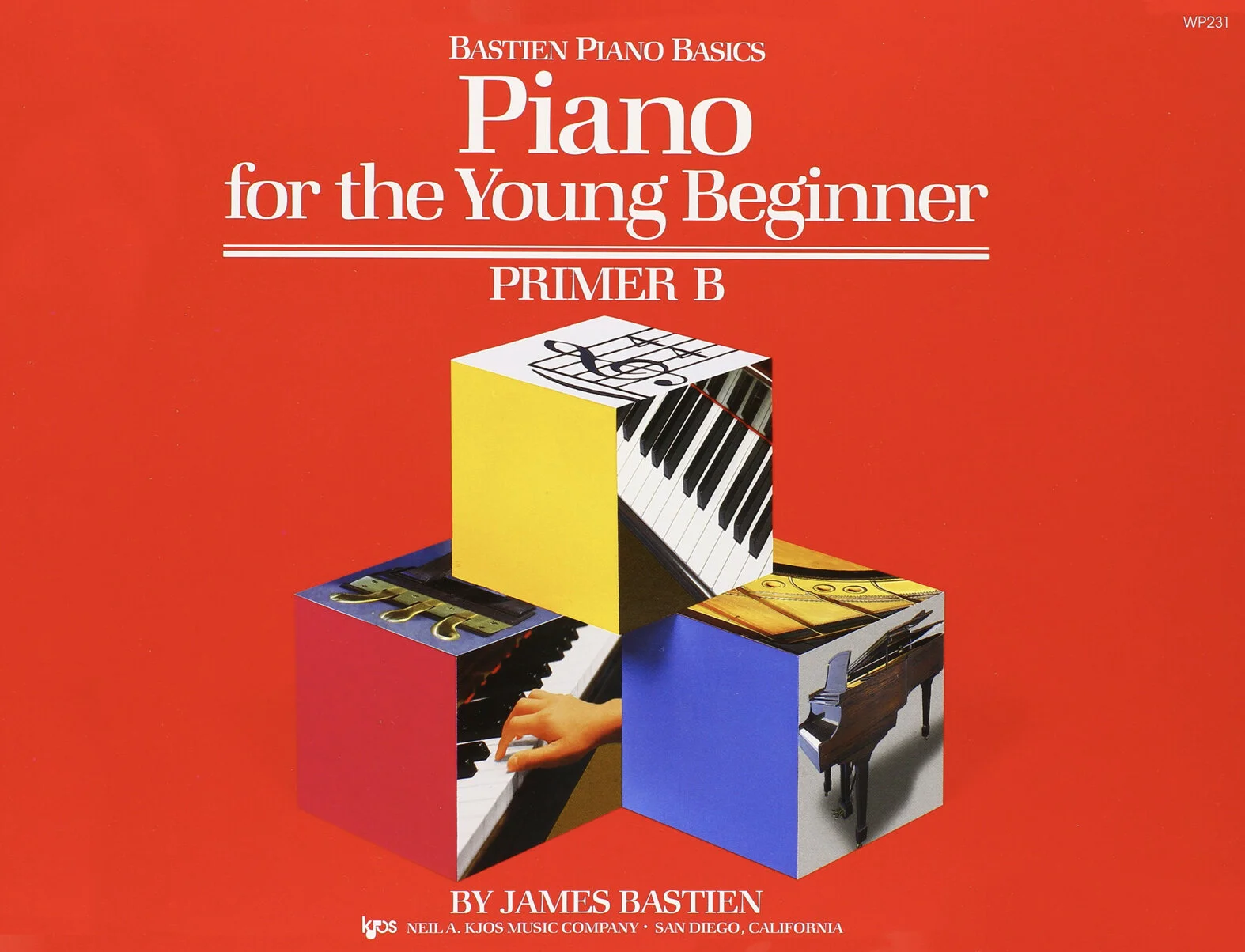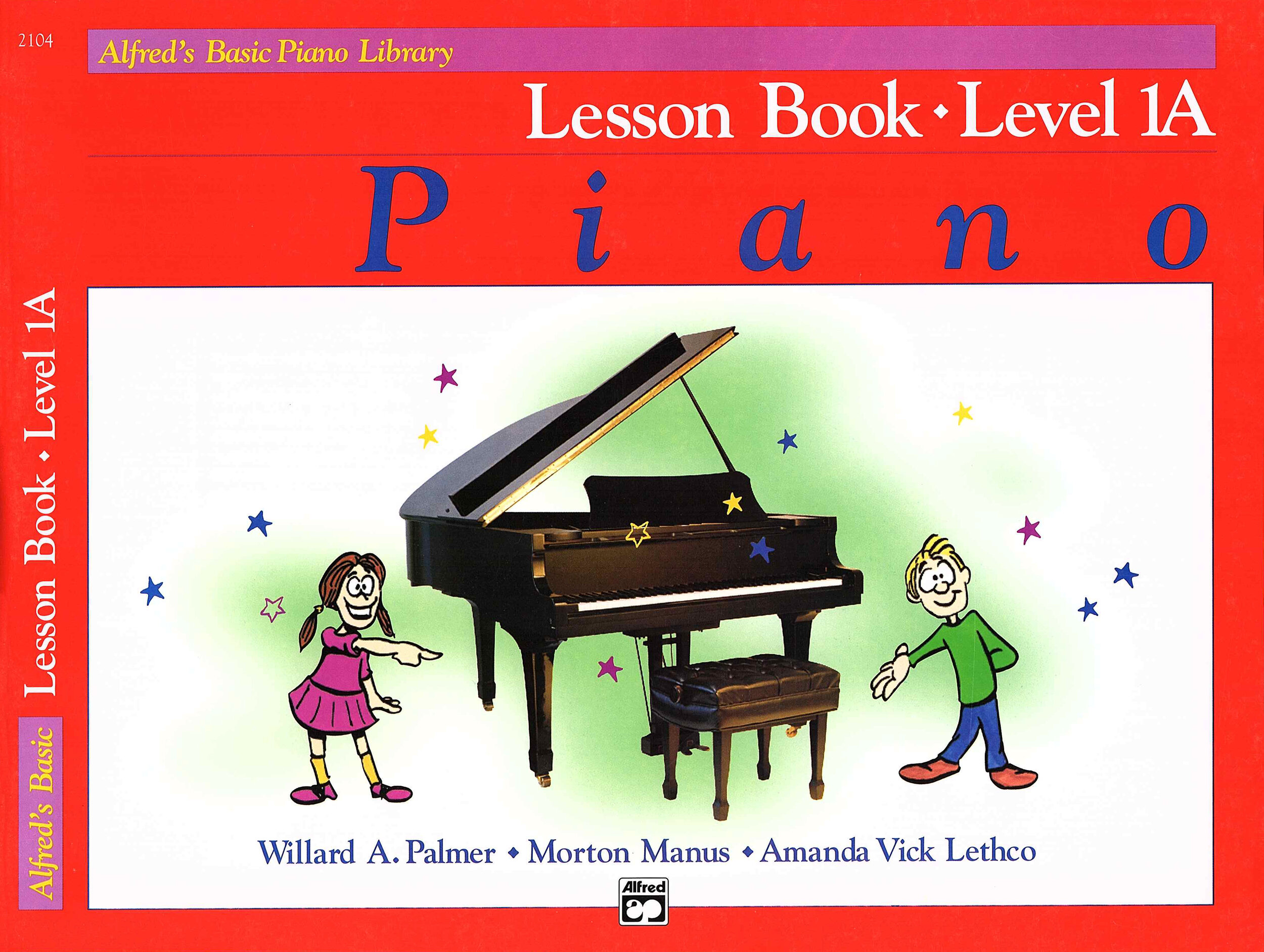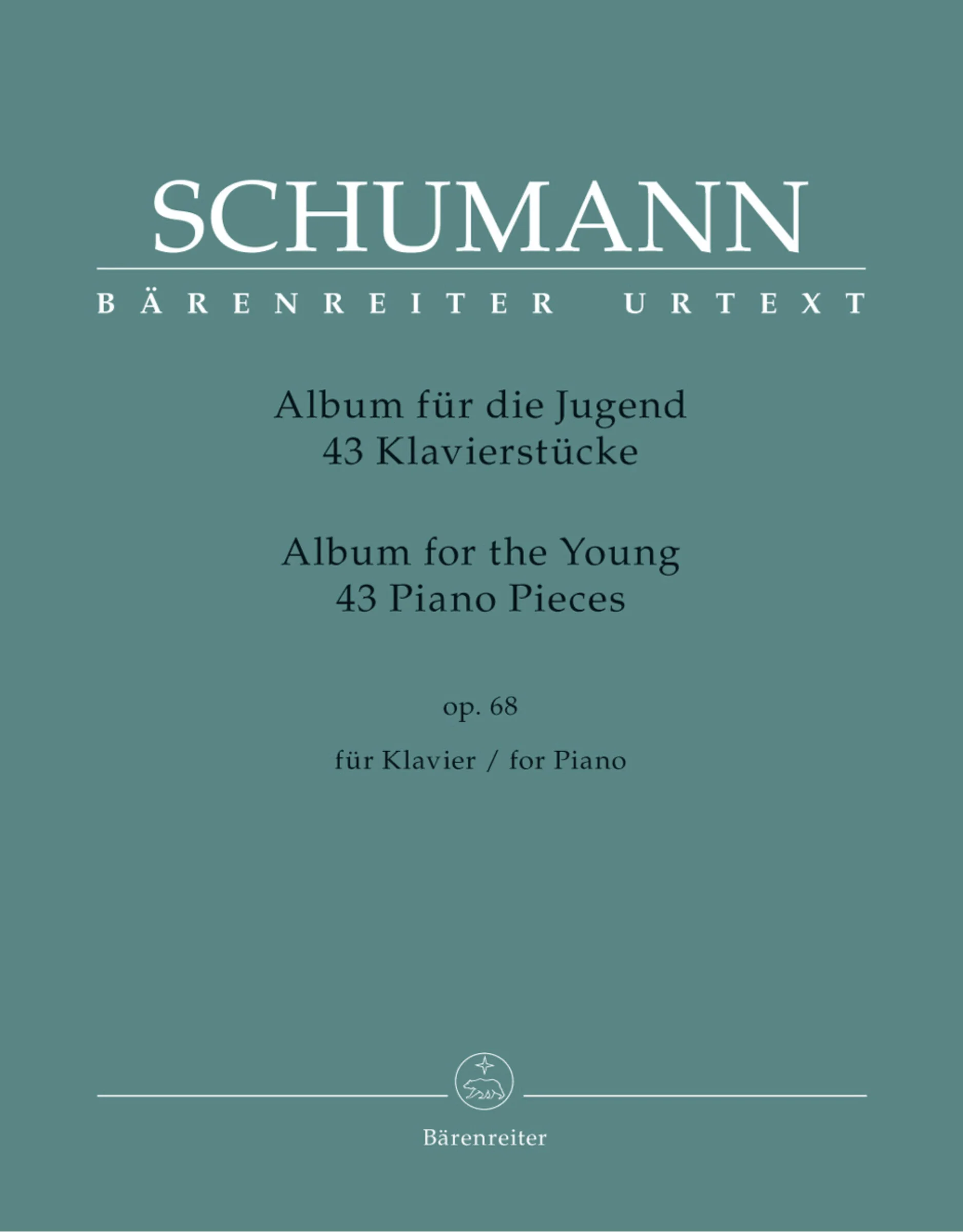Kid’s Piano Books
Whether your child is working with a piano teacher, you’re teaching piano to your child as a parent, or your child is looking to explore the piano independently, one of the first questions that often comes up is what books or materials to buy to facilitate the learning process. Piano Pedagogy has come a long way over the years. Today, there are many different choices when it comes to books that a child might use to learn to play the piano, and of course, if you need help from a piano teacher in Westchester County, please get in touch.
Piano Methods
What is a Piano Method?
The term “Method” or “Piano Method” is often used to refer to a book or series of books that guides a student through the early stages of learning to play the piano. A Piano Method usually covers the most basic and important aspects of learning to play the piano, such as learning the notes on the keyboard, reading music (learning the notes on the staff), and the basics of technique (posture, hand shape, etc.). As a Method progresses, it will also usually introduce the student to the basics of other important concepts such as dynamics, articulation, and important notation symbols and markings.
Faber Piano Method
Faber - Piano Adventures (Ages 7 - 11)
The Faber Piano Adventures series is one of the most popular piano methods right now for teaching children ages seven to eleven years of age. The main books in this series are the Lesson Books, which take a student through a progressive path of practice material. This series was written by Nancy and Randall Faber.
There are currently 8 Lesson Books in total, including the following:
Faber Piano Adventures - Primer
Faber Piano Adventures - Level 1
Faber Piano Adventures - Level 2A
Faber Piano Adventures - Level 2B
Faber Piano Adventures - Level 3A
Faber Piano Adventures - Level 3B
Faber Piano Adventures - Level 4
Faber Piano Adventures - Level 5
Faber also offers some other books to supplement the Lesson Books, such as theory books, sightreading books, and technique and artistry books.
Faber - Accelerated Piano Adventures (Ages 11 and Up)
Faber also has another line of books called Accelerated Piano Adventures. This series is for children who are starting to learn the piano around the ages of 11 or 12 years old. It moves at a bit of a faster pace than the Piano Adventures series, as children at this age are able to learn piano material a bit more quickly.
Faber - My First Piano Adventure (Ages 5 - 6)
For younger children ages five to six years old, faber offers the My First Piano Adventure series. Faber also offers sticker books with music and piano related content that a child of this age range might find engaging.
Bastien Piano Method
Bastien also offers a piano method with different series for children of different age groups.
Bastien - Piano for the Young Beginner (Ages 5 - 6)
The Piano for the Young Beginner series is a good choice for children just starting out with piano around the ages of five or six years old. It contains the following two books:
Bastien, Piano for the Young Beginner - Primer A
Bastien, Piano for the Young Beginner - Primer B
Bastien - Piano Basics (Ages 7 - 11)
The Bastien Piano Basics is another series that covers the same general areas as the Faber Piano Adventure series. The main books in this series are listed below:
Bastien, Piano Basics - Primer
Bastien, Piano Basics - Level 1
Bastien, Piano Basics - Level 2
Bastien, Piano Basics - Level 3
Bastien, Piano Basics - Level 4
Bastien also offers supplementary books covering subjects like theory, performance, sight reading, and piano technique.
What Is The Alfred Piano Method For Kids?
Alfred
Alfred offers a large catalogue of method books for young piano students. The two main series are Alfred’s Basic Piano Library and Alfred’s Basic Piano Prep Course for the Young Beginner. The main books in these series are the Lesson Books. Each series also offers supplementary books, such as theory, recital, technic, and ear training books.
Alfred also offers an All-in-One series that contains selections from its lesson, theory, recital, and fun solo books, and a Complete Levels series (Ages 8 and up) which moves at a faster pace than the Basic Piano Library series.
Alfred’s Basic Piano Library (Ages 7 - 9)
The main books from Alfred are the Alfred’s Basic Piano Library series, which are good for children ages 7 to 9 years old. The primary books in this series are the lesson books, which are shown below:
Alfred’s Basic Piano Library - Lesson Books 1A & 1B
Alfred’s Basic Piano Library - Lesson Book 2
Alfred’s Basic Piano Library - Lesson Book 3
Alfred’s Basic Piano Library - Lesson Book 4
Alfred’s Basic Piano Library - Lesson Book 5
Alfred’s Basic Piano Library - Lesson Book 6
The Basic Piano Library Series also includes theory books, recital books, and technic books with additional material.
Alfred’s Basic Piano Prep Course for the Young Beginner (Ages 5-7)
Alfred makes a preparatory series that is geared for younger children. It’s called Alfred’s Basic Piano Prep Course for the Young Beginner. It includes the below books, as well as other supplementary materials.
Alfred’s Basic Piano Prep Course - Lesson Book A
Alfred’s Basic Piano Prep Course - Lesson Book B
Alfred’s Basic Piano Prep Course - Lesson Book C
Alfred’s Basic Piano Prep Course - Lesson Book D
Alfred’s Basic Piano Prep Course - Lesson Book E
Alfred’s Basic Piano Prep Course - Lesson Book F
The Music Tree Piano Method
The Music Tree (Ages 6 - 12)
The Music Tree Series is another popular choice for children starting out at the piano.
This series was written by Frances Clark, Louise Goss, and Sam Holland. Frances Clark was a well known piano teacher and author of piano pedagogy materials. The Frances Clark Center For Keyboard Pedagogy is named after her, and she was one of the founders of the The New School for Music Study (NSMS) in New Jersey.
I like this series a lot because I think it does a great job of teaching the important skill of reading music. The series emphasizes reading intervals by following the distance between notes and the direction the notes are moving in. This approach is beneficial because it encourages students to take in sections of music at once, rather than focusing on one note at a time. The main books in the Music Tree Series are listed below:
The Music Tree - Part I
The Music Tree - Part 2A
The Music Tree - Part 2B
The Music Tree - Part 3
The Music Tree - Part 4
The Music Tree series also offers activities books and keyboard technique books.
The Music Tree - Time to Begin (Ages 5 - 7)
For younger students or students who are just starting out with music, the Time to Begin books might be a better starting point than Part I of the main series. This series includes thee below titles:
The Music Tree, Time to Begin - Student’s Book
The Music Tree, Time to Begin - Activities Book
Noona Piano Method
Noona Clavier - The European Approach (Ages 7 - 12)
The Noona Clavier series is another good option, especially for students who are planning to study the classical repertoire. This series was written by Walter and Carol Noona.
This method introduces the student to various classical composers and musical forms, theory concepts like parallel and contrary motion, and terminology and notational symbols that will be encountered in the classical literature. The main books in this series are shown below:
Noona Clavier - Method Book 1
Noona Clavier - Method Book 2
Noona Clavier - Method Book 3
Noona Clavier - Method Book 4
This series also offers repertoire books with more material for students to work through.
Noona Basic Piano (Ages 6-7)
For younger students or students without any musical background or education, the Noona Basic Piano series might be a better starting point than the Noona Clavier books. This series includes the following books:
Noona Basic Piano - Starter Book
Noona Basic Piano (All in One) - Book 1
Noona Basic Piano (All in One) - Book 2
Noona Basic Piano (All in One) - Book 3
Piano Technique Supplements
A Dozen a Day
The Dozen a Day series is a good way to teach some of the basics of technique and also gives students some extra reading practice. These books contain short exercises that students can play through each day as part of their practice routine. This series was written by Edna-Mae Burnam. It contains the following books:
A Dozen A Day - Mini Book
A Dozen A Day - Preparatory Book
A Dozen A Day - Book 1
A Dozen A Day - Book 2
A Dozen A Day - Book 3
A Dozen A Day - Book 4
Czerny - The Young Pianist, Op. 823 (Complete) (Alfred Masterwork Edition)
Carl Czerny (1791 – 1857) was a pianist, composer, and music teacher. He is a very important figure in the history of classical music and the piano as he was a student of Beethoven, a teacher of Liszt, and wrote many important pedagogical works for the piano. His Opus 23 contains many short exercises and studies that are useful for developing important piano skills such as technique, interpretation, and reading.
Repertoire Materials
Pageants for Piano - Donald Waxman
Pageants for Piano, written by Donald Waxman, is a series of books containing easy pieces for the young beginning pianist. It contains some wonderful and very musical material for children to play through and learn. I like this series because it uses a wider variety of musical materials than you might find in some of the more commercial children’s piano literature. This main books in this series include the below:
Introductory Pageant, Bk.1
A New Pageant (introductory) Bk. 1A
Piano Pageant Bk. 2
Folksong Pageant Bk. 2A
Piano Pageant Bk. 3
Folksong Pageant Bk. 3A
Further information about these books and how to order them can be found on Donald Waxman’s web site.
Beginning Piano Solos (132 Original Masterpieces) - Paul Sheftel
Beginning Piano Solos is a compilation of relatively easy piano pieces from different periods. This collection was put together by Paul Sheftel, who has served as faculty at the Manhattan School of Music and Juilliard. This book includes works by the following composers, among others:
Bach
Beethoven
Mozart
Bartok
Purcell
Schumann
Tchaikovsky
Notebook for Anna Magdalena Bach
This volume contains some very beautiful works from a notebook given by J.S. Bach to his wife Anna Magdalena Bach. The pieces in this book were used by Bach’s large and very musical family for learning and playing music. Many of the pieces in this book were composed by J.S. Bach himself, while others were written by J.S. Bach’s son Carl Philip Emmanuel Bach (C.P.E. Bach) or other composers of the time.
Notebooks for Mozart and His Sister
The notebooks of Mozart and his sister Maria Anna (Nannerl) contain many pieces that Mozart and his sister played growing up as well as some of Mozart’s earliest compositions. It contains a wealth of musical material for any growing musician to learn from.
Schumann - Album for the Young
Schumann’s Album for the Young contains a number of interesting repertoire choices from the Romantic Period that are a good fit for younger and beginning students. It was composed by Robert Schumann in 1848 for his three daughters.
Learn More About Children’s Piano Literature
If you want to learn more about book choices for children's beginner piano, please get in touch at your earliest convenience. We can meet for piano lessons in White Plains or online piano lessons.













